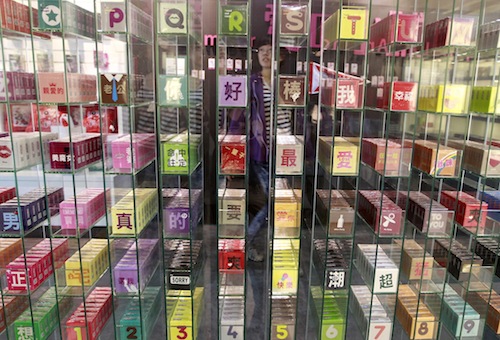KUALA LUMPUR, Nov 25 — At a glance, it appears not much more complicated than a rubber sheath, but that is not stopping Malaysia’s number one condom manufacturer from pumping RM4 million towards putting big fun into small packages.
As part of its expansion plans, Karex Bhd is nearly doubling the amount it is spending on research and development for the humble rubber contraceptive, which weighed in at RM2.5 million in 2012, according to a report by US news daily Wall Street Journal.
Having put “safe” in the bag, Karex is now — and always, according to chief executive Goh Miah Kiat — looking to make sex “better”.
More importantly, however, is to convince amorous couples to even pick up the lubricated rubber tubes to begin with.
“Ultimately, what matters most is getting our condoms out and getting across the message that sex can be safe and fun.
“While R&D is integral to Karex’s strategy, engaging with young people on practising safe sex is just as crucial,” Goh was quoted as saying in the report.
Like most Asian nations, sex is a taboo subject in Malaysia. Condoms, despite its role in preventing sexually transmitted diseases such as HIV, are not allowed to be advertised openly. This leaves the act of encouraging their use largely limited to the point of sale.
Karex, for example, is turning to colourful packaging and exotic flavours — durian and Pina Colada, among others — to catch the eyes of buyers and, hopefully, overcome the bashfulness of picking up a pack of condoms.
Other “innovations” include textured and unusually shaped to condoms to help introduce variety inside the bedroom.
The company’s efforts appear to be working. In the same WSJ report, the newly listed firm is eyeing a RM42-million investment to increase its production capacity by 100 per cent, hitting an estimated 6 billion prophylactics in 2015.
If it is successful, the firm that began life as a rubber plantation in Johor in the 1960s could eventually supply nearly a quarter of the expected 27 billion condoms the same year.
Condoms are considered an effective method in controlling the spread of HIV/AIDS. According to statistics from UNICEF Malaysia, around 3,652 cases of infection were reported in 2010, or around 10 cases every day.
There is currently no known cure for the disease that infects 2,400 people every day, according to a 2012 World AIDS Day report by the Joint United Nations Programme on HIV/AIDS, or UNAIDS, and contraceptives such as condoms remain the most effective weapon in the fight against its spread.






















